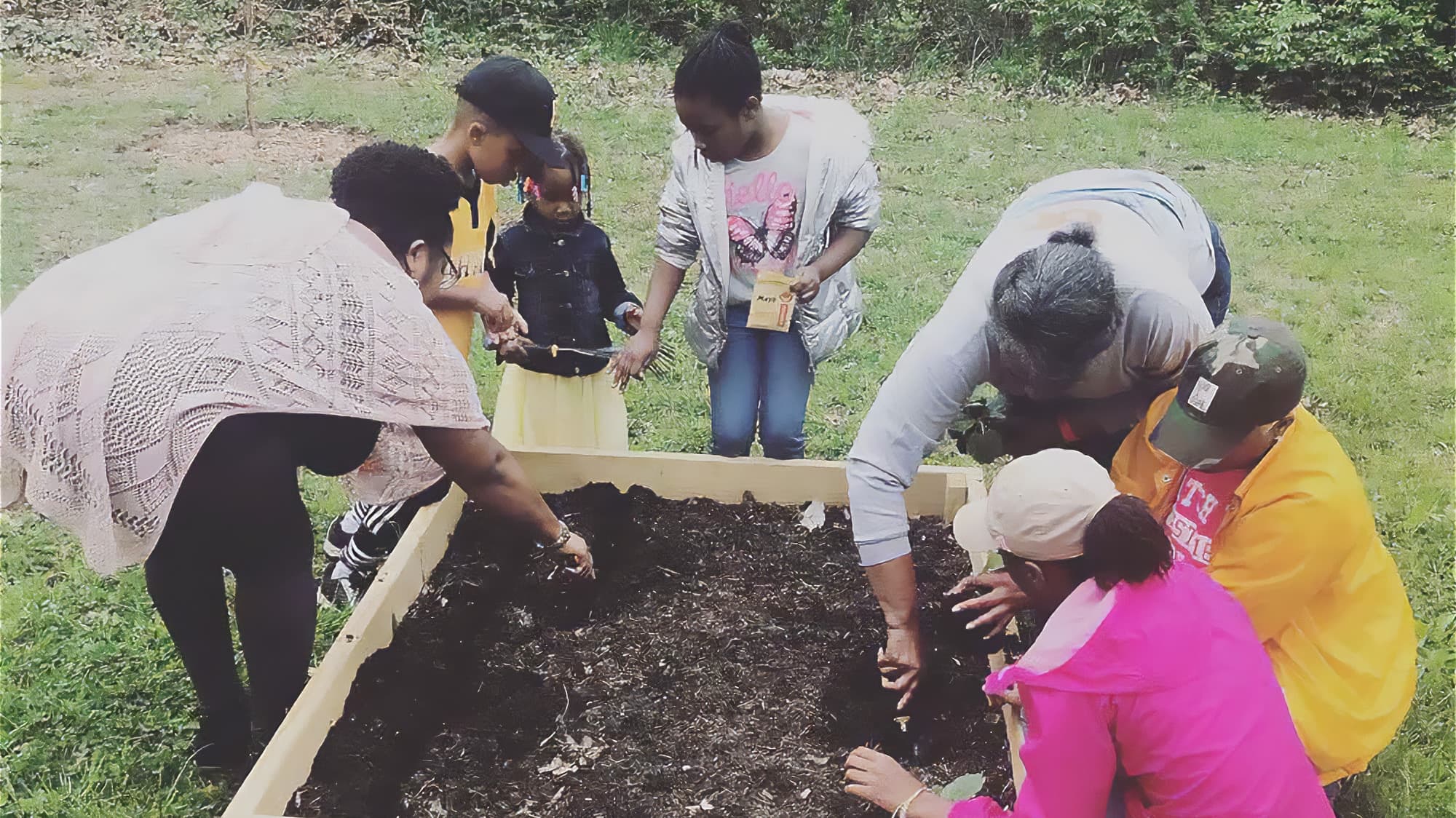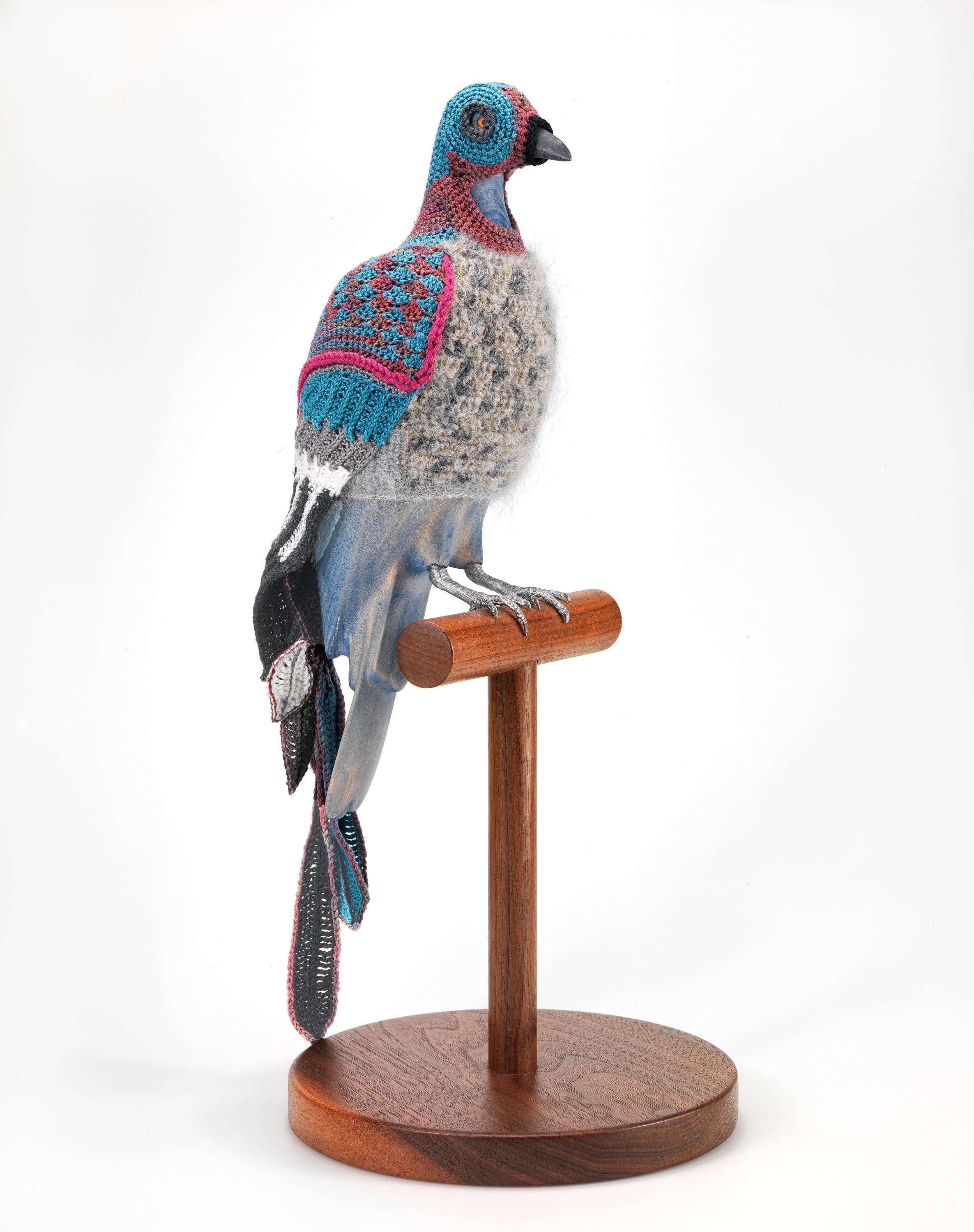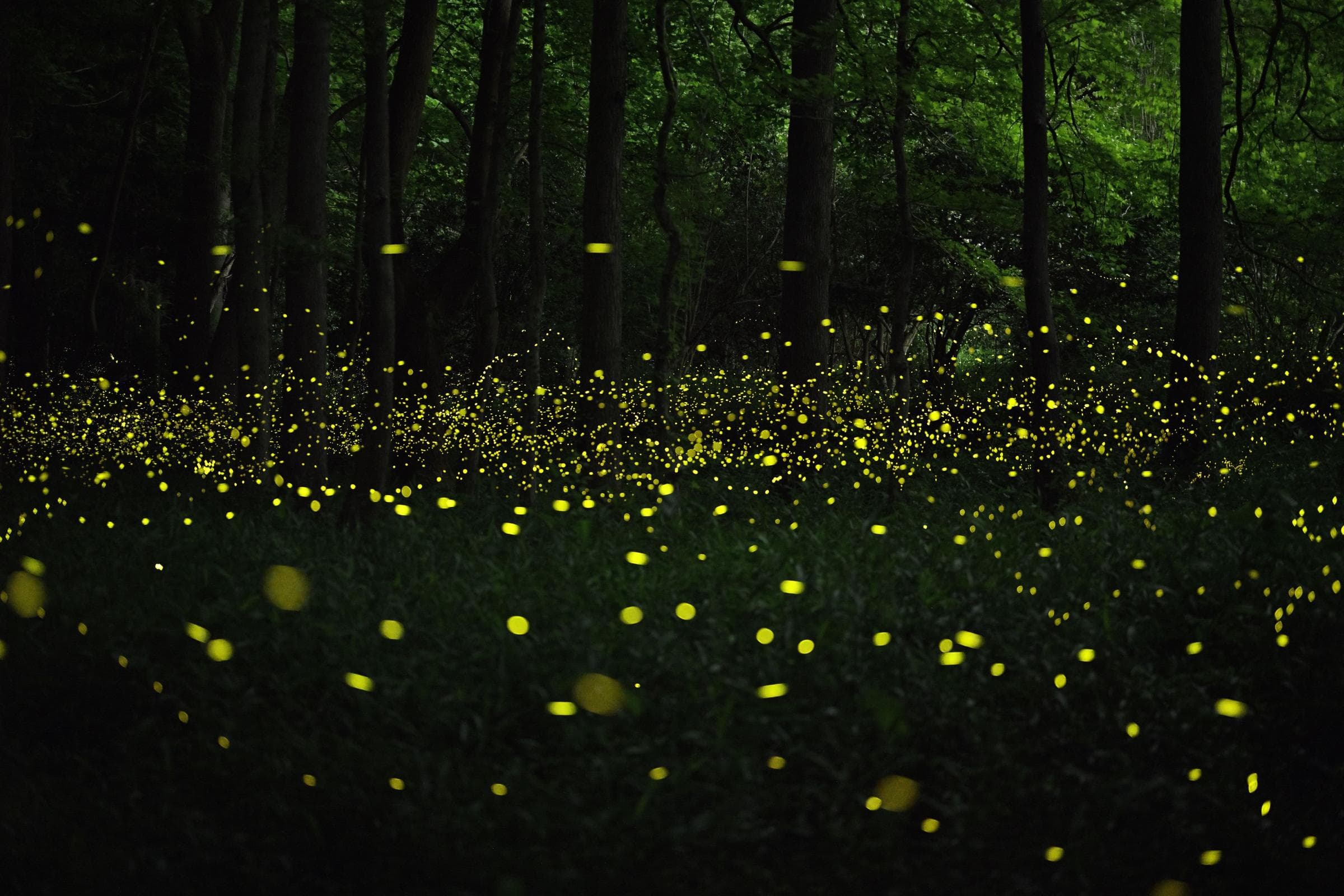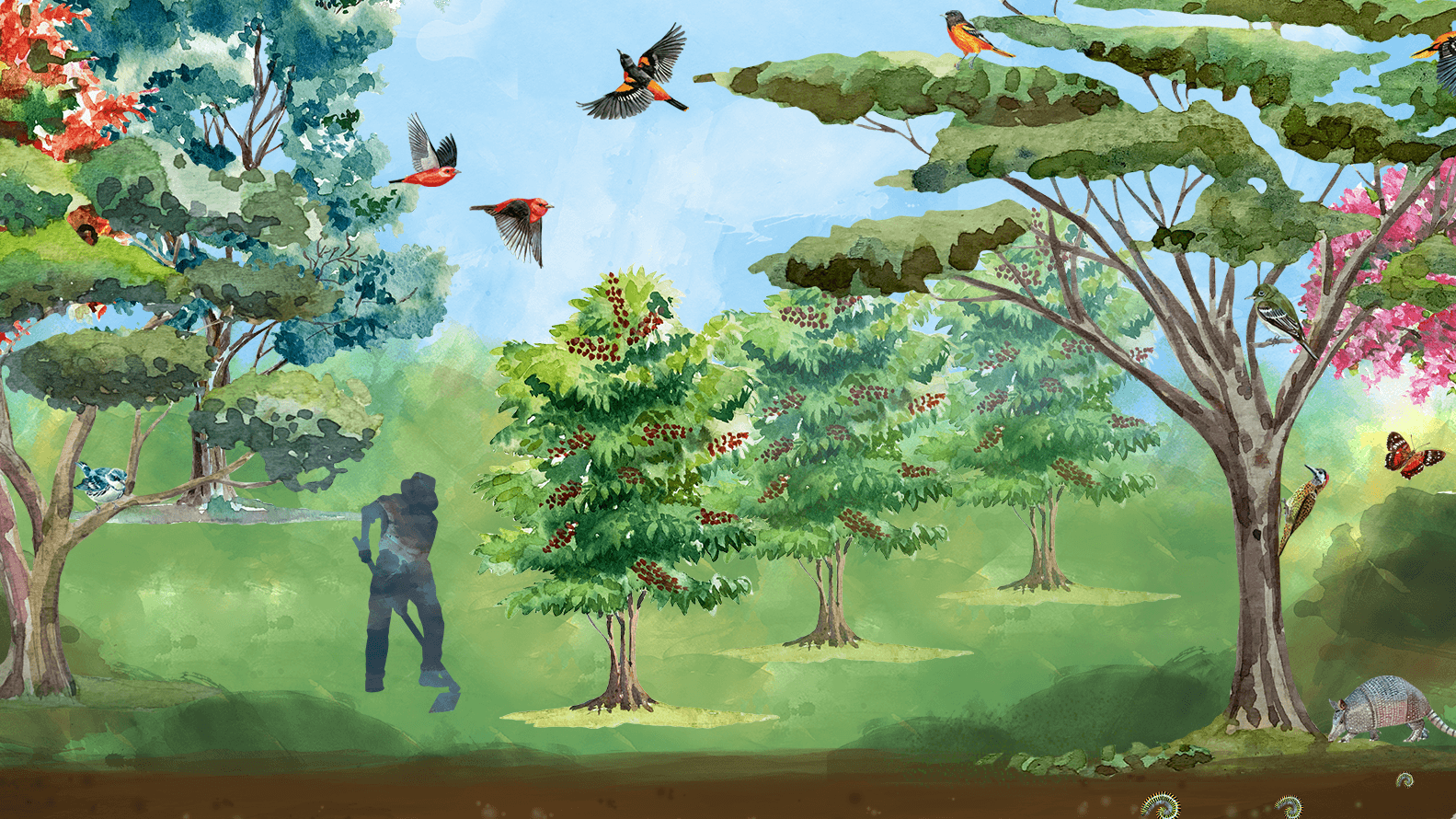
Drink Coffee, Eat Chocolate, Save Birds
Together, we can foster a world where every sip of coffee and every bite of chocolate contributes to a more resilient, interconnected ecosystem.
As the world population has surged from 4 billion to 8 billion since 1970, a stark reality unfolds: the pressing need to be more sustainable in the way we produce food. This transformation isn't just about feeding an ever-growing number of mouths; it's about preserving the intricate ecosystems we share with wildlife, illustrating a pathway to resilience for both people and nature. In particular, a worrying trend has emerged in the tropical forests of central Panama: there have been significant declines in over half of the understory bird species since the late 1970s. Similarly, in the United States, bird populations have plummeted by 3 billion in the last 50 years. The cause? Intensive agricultural practices to keep up with growing consumption have stripped away the habitats these migratory birds rely on.
This decline is more than a statistic; it's a wake-up call to build a resilient, healthy ecosystem in which birds play a critical role. They control pests, pollinate plants, and contribute to the balance of nature in ways we are only beginning to understand.
The Smithsonian has been at the forefront of addressing this challenge. As international aid organizations encouraged farmers to intensify agricultural production in the 1970s, the impact on bird populations became painfully clear. Russel Greenberg, founder of the Smithsonian Migratory Bird Center, discovered a ray of hope. His research in Mexico and Peru shows that when coffee was grown on farms in the shade of tropical trees there were significantly more birds than on farms where coffee was grown in the sun. This insight led to a transformation in agricultural practices across Latin America, where farmers are now adopting more bird-friendly methods.
The Smithsonian Tropical Research Institute and the Smithsonian Conservation Biology Institute’s Migratory Bird Center responded by initiating the Bird Friendly program, setting a new gold standard for sustainable coffee and chocolate production. This certification isn't just a label; it's a commitment to a richer, more adaptable, and resilient world. Farms that meet these exacting standards create sanctuaries for birds, offering a diversity of trees and a canopy of shade, crucial for their survival. In each Bird Friendly farm, there’s a story of transformation, of how traditional farming practices can evolve to not only coexist but actively enhance our natural world.
If you love your morning coffee and indulge in chocolate, there’s an opportunity to make a small but meaningful expression of resilience and adaptability. By opting for products certified by the Smithsonian Bird Friendly program, you are changing and adapting your daily habits for the greater good. Your choices support a lifestyle that embraces science, innovation, and global interconnectedness. In this way, every morning becomes an occasion to reaffirm our dedication to a future where humans and nature thrive in harmony.
We invite you to see the tangible impact of your choices and experience the vibrant lives of migratory birds at the Bird House at the Smithsonian’s National Zoo and Conservation Biology Institute. Together, we can foster a world where every sip of coffee and every bite of chocolate contributes to a more resilient, interconnected ecosystem.
These stamps from the National Postal Museum showcase migratory birds that rely on coffee-growing landscapes in the tropics for their survival.
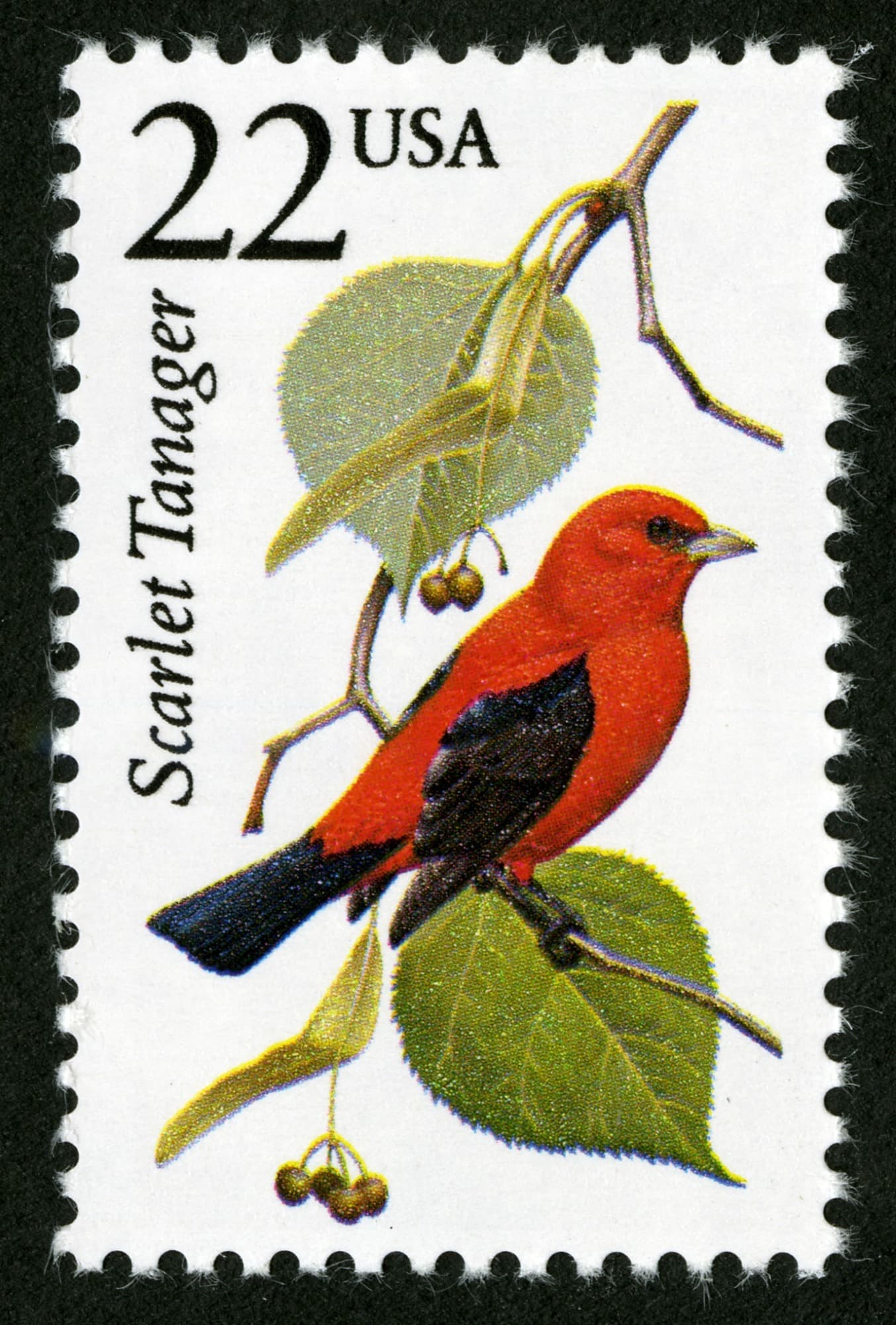
22c Scarlet Tanager single
Source: National Postal Museum (1989.0496.10064)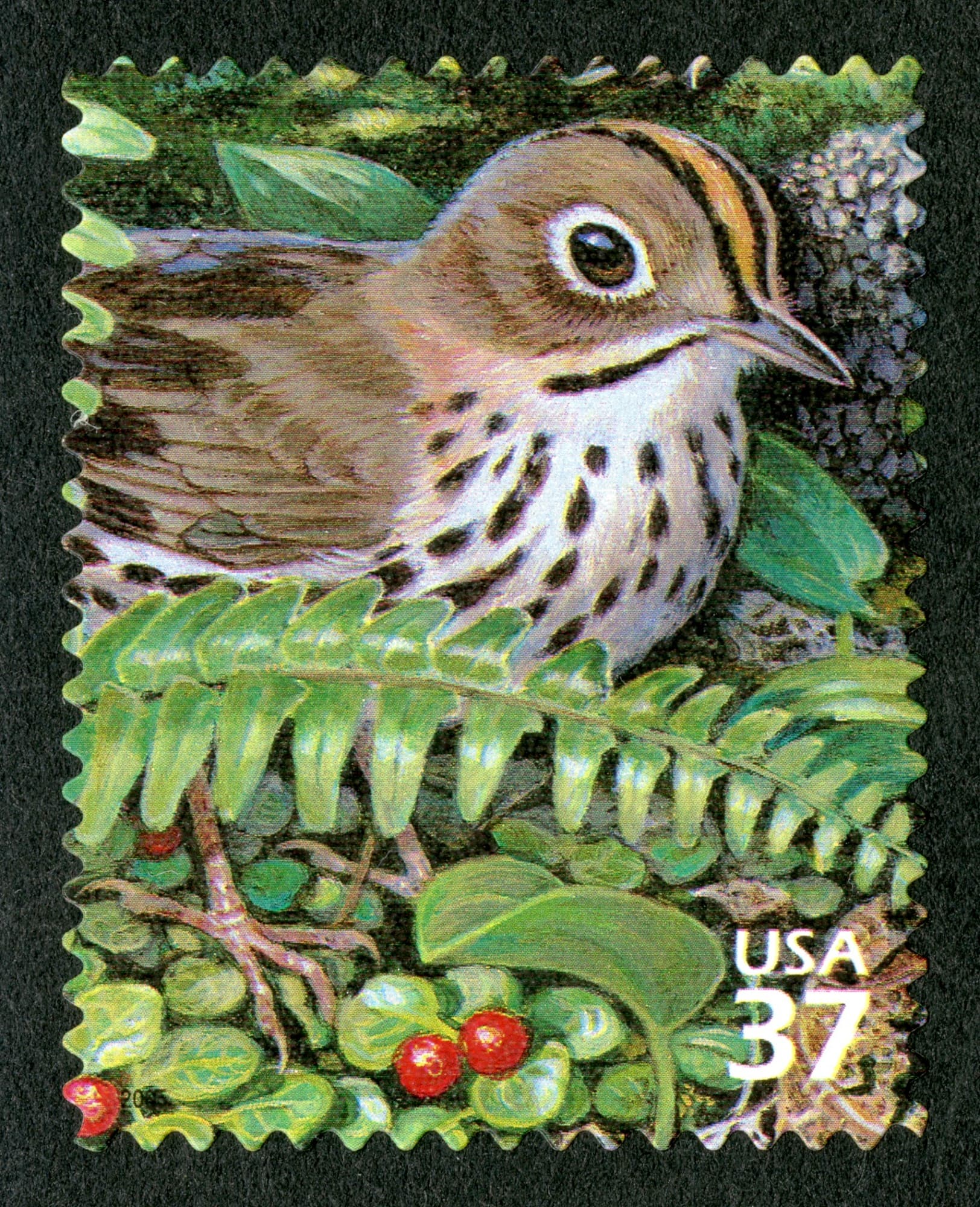
37c Ovenbird single
Source: National Postal Museum (2005.2012.9.8)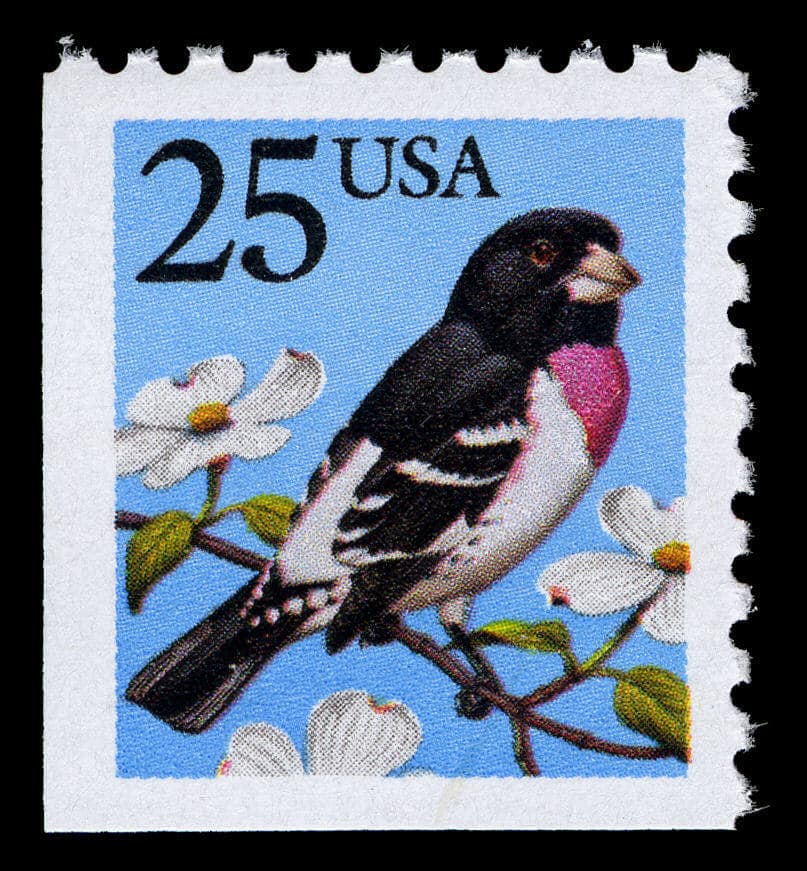
25c Grosbeak single
Source: National Postal Museum (1993.2070.104)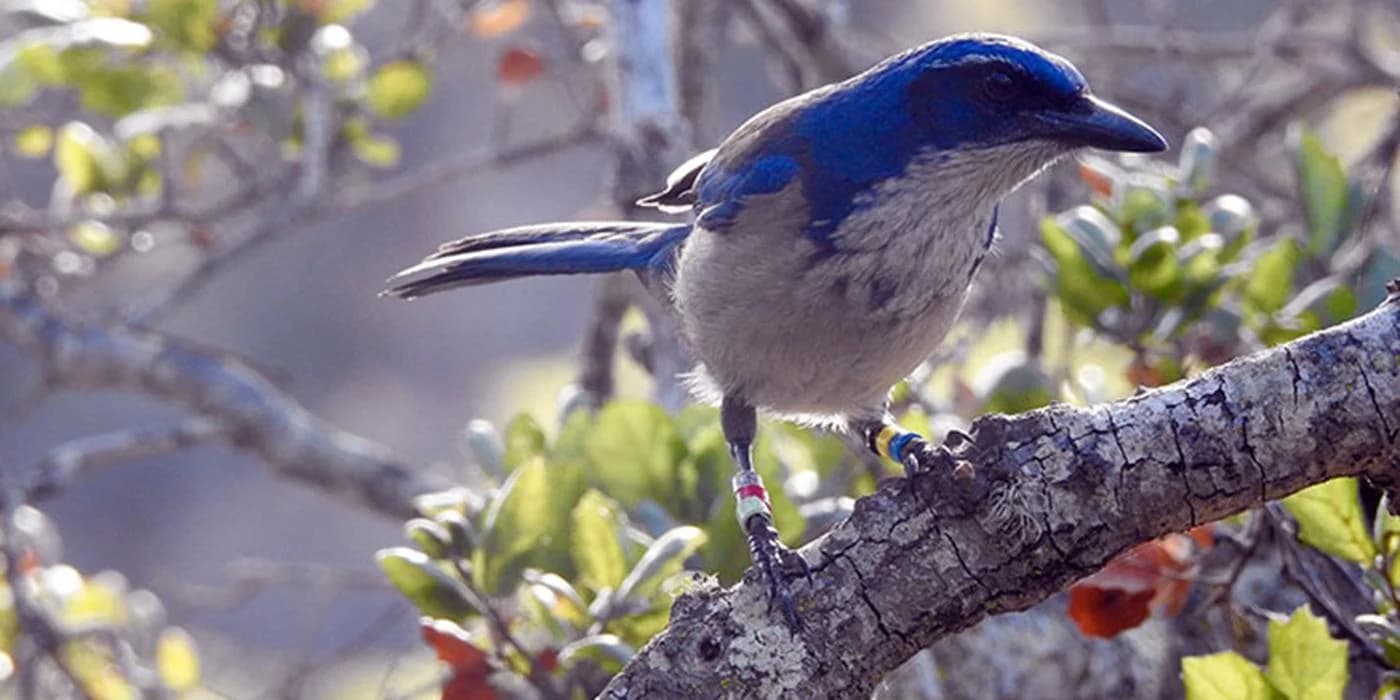
The Migratory Bird Center at the Smithsonian's National Zoo and Conservation Biology Institute is dedicated to understanding, conserving and championing the grand phenomenon of bird migration.
Exhibition Title
Location
Address
Washington, DC 20011
